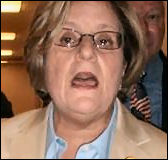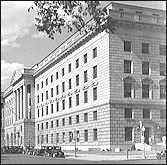 ABOVE: Ileana Ros-Lehtinen
ABOVE: Ileana Ros-Lehtinen
On October 19 this blog reported on a hearing held by the Senate Energy and Natural Resources Committee with respect to efforts that the U.S. government and U.S. companies are taking to respond to and mitigate potential ecological disasters that might stem from planned exploratory drilling by non-U.S. companies in Cuban territorial waters. The chairs in the hearing room had barely cooled off before Ileana Ros-Lehtinen, Chair of the House Foreign Relations Committee, fired off a letter to the Obama administration criticizing any efforts by the federal government to minimize the impact of the Cuban drilling on the ecology of nearby U.S. coastal waters. Because the drilling is going to occur in all events, complaining about damage containment on U.S. shores seems to be a classic case of cutting off our own nose to spite Cuba’s face.
Chairwoman Ros-Lehtinen’s tenure on the Foreign Relations Committee has, sadly, not caused her to learn much about U.S. export laws, as we’ve noted before, and this letter on Cuban drilling continues to demonstrate her confusion about applicable export and sanctions laws. For starters, the Chairwoman seems to believe that the lapsed Export Administration Act is still in force when she demands an investigation by the Bureau of Industry and Security (“BIS”) as to whether use of a Chinese-built rig in the drilling violates the “Export Administration Act.”
The de minimis rule also appears to have confused Ros-Lehtinen:
We are concerned by reports that the Scarabeo 9 may have been designed specifically to avoid U.S. economic sanctions against Cuba. While the EAA and the Export Administration Regulations (EAR) generally prohibit virtually all exports and reexports of U.S.-origin goods, software and technology to Cuba, we need clarity on how the Administration is applying the sanctions and EAR to foreign produced items incorporating 10 percent or less controlled U.S. content
That is not a difficult question to answer: the sanctions and the EAR do not apply to restrict export to Cuba of foreign-produced items incorporating 10 percent or less controlled U.S. content. There’s no need to write a letter to President Obama to get that answer; it’s clearly stated in the EAR.
But the Chairwoman saves the best for last:
The Export Administration Regulations clearly state that the only items allowed to be exported to Cuba are donations of medical equipment, agricultural exports, and telecommunications equipment. Thus, even if the de minimis rule does not [sic] apply, the broader prohibitions against exports to Cuba must still be enforced.
Where exactly to start with this? Section 746.2(a)(1) of the EAR permits many more exports other than the three mentioned by Ros-Lehtinen, including medicine, computers, disk drives, digital cameras, televisions, radio receivers, recording devices, baggage, gifts, humanitarian donations, aircraft on temporary sojourn, spare parts for foreign-made equipment and much more. More importantly, any listing of permissible exports in section 746.2(a)(1) does not overrule the explicit provisions of the de minimis rule found in section 734.4 of the EAR which specifically permits re-exports to Cuba of items with 10 percent or less U.S.-origin controlled content.
 Oh, the things you’ll learn when you read the documents that companies file with the Securities and Exchange Commission:
Oh, the things you’ll learn when you read the documents that companies file with the Securities and Exchange Commission:
 Posted by
Posted by  Category:
Category: 

 This blog
This blog  There was more fallout from the PPG case today. Xun Wang, who was the former manager of the Shanghai subsidiary of PPG,
There was more fallout from the PPG case today. Xun Wang, who was the former manager of the Shanghai subsidiary of PPG, 
 Freight forwarder
Freight forwarder 

